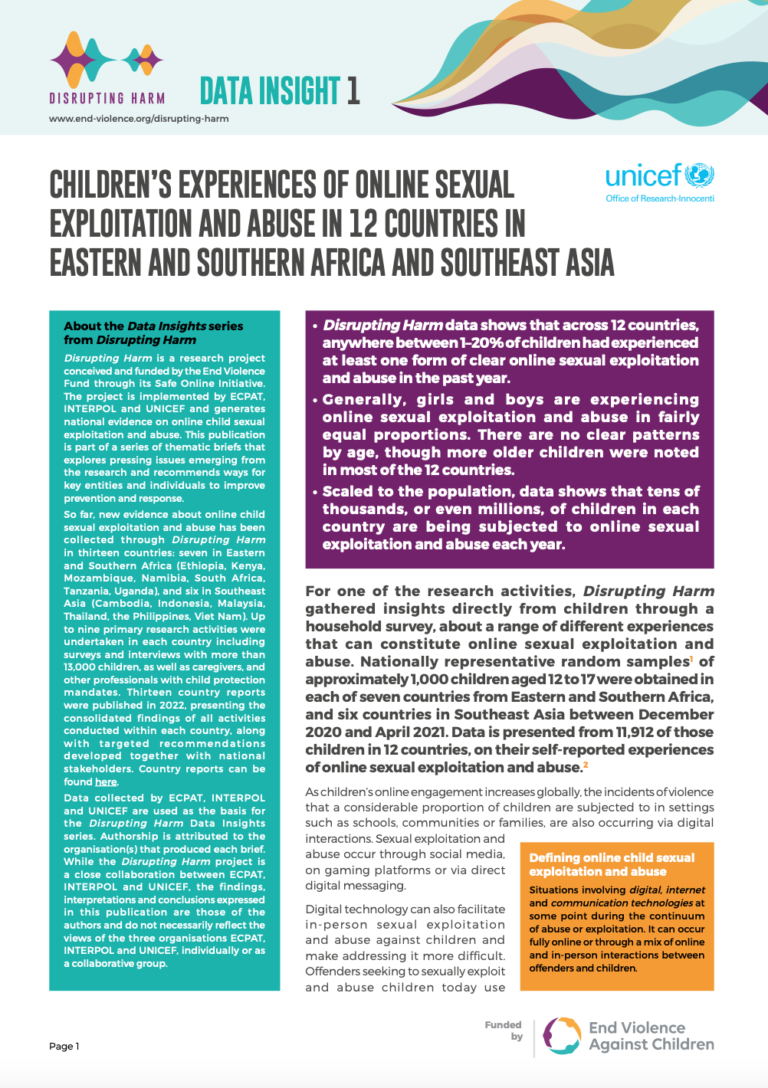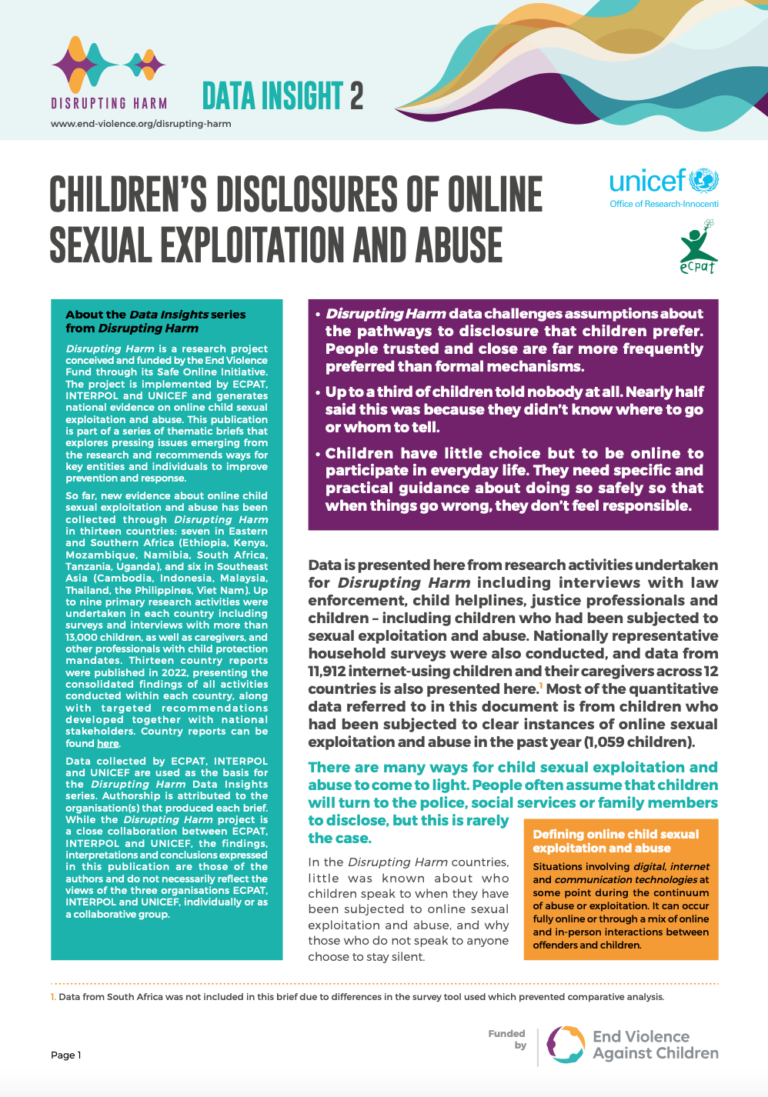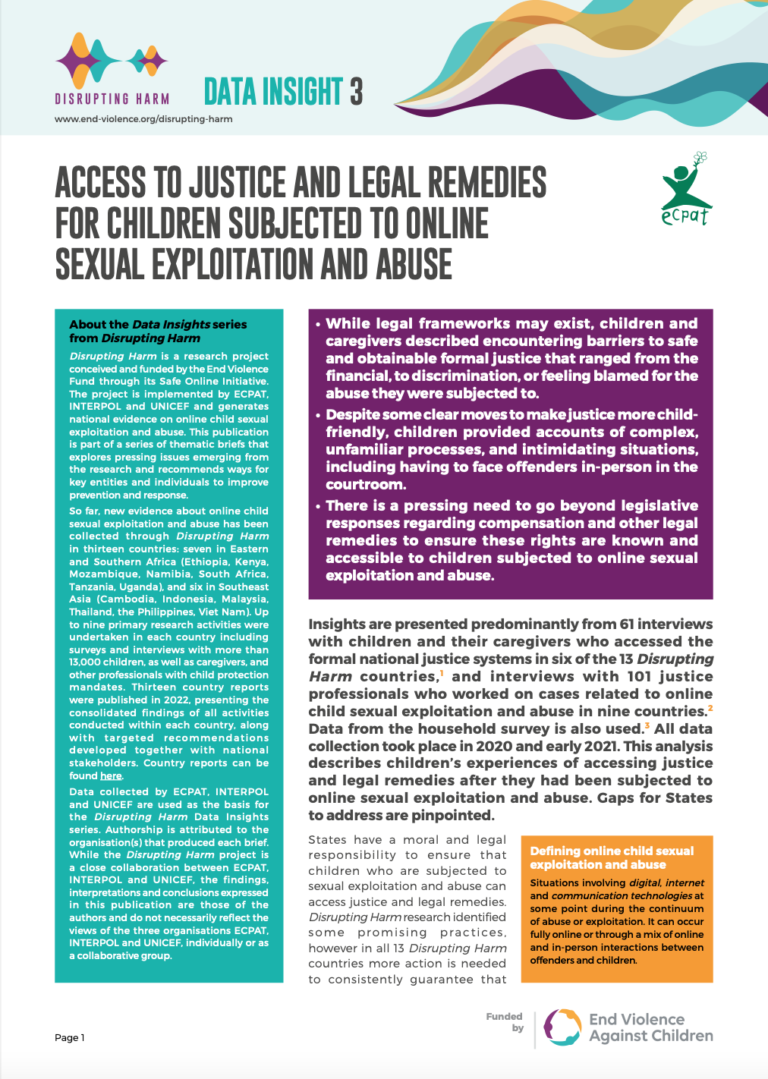For more than two decades, we have used the internet to connect with family and friends worldwide. Internet usage was already increasing year-over-year, and the tools we use to connect have been rapidly evolving – but then we were hit by COVID-19, which has further accelerated the shift online of many aspects of our lives.
Being online is often a very positive experience for children, providing them opportunities to learn and socialise. But it can also increase the risk of exposure to negative experiences, including online child sexual exploitation and abuse.
However, despite the understanding that children’s experiences are frequently mediated by digital technologies, there is a lack of evidence to quantify these risks and identify which children are more likely to be harmed. This makes it difficult to prevent and disrupt situations of abuse and exploitation. There is an urgent need to build a more comprehensive understanding of the threats of online child sexual exploitation and abuse at national and regional levels.
Disrupting Harm was created to respond to this need. To prevent and respond to online child sexual exploitation and abuse, we must base our solutions on the latest data and evidence.



